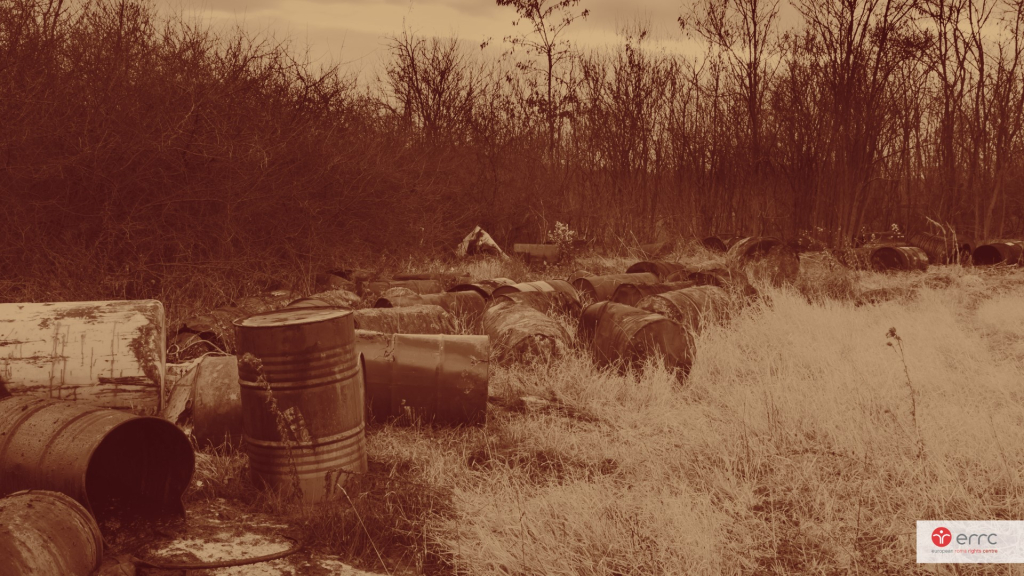North Macedonia: Victory for Roma in Shuto Orizari following mass complaint about waste pollution
13 May 2025

On 29 April 2025, the North Macedonian equality body found in favour of Romani residents of the Municipality of Shuto Orizari who, together with the ERRC, filed a mass complaint against the City of Skopje about environmental racism. Years of official neglect and inadequate waste management left residents in a polluted and foully malodorous environment that posed a risk to their health; and constituted an assault on their dignity that amounted to a violation of their right to equal access to public services. The City of Skopje has been given 30 days to clean up its act or face consequences.
According to the ERRC, “The environmental racism faced by Roma across Europe is both deliberate and structural in form. This victory is one more example of why people’s resistance counts, and a reminder that Roma lives matter. It remains vital to challenge policies of direct oppression and malign neglect that render lives even more precarious. In exposing the Romani community to toxic and polluting hazards, the City of Skopje has been found guilty of indirect and intersectional discrimination on the grounds of ethnicity, social class and group stigmatisation. The equality body in North Macedonia has set an important precedent for environmental justice in this case.”
Seven years ago, in 2018, the ERRC first lodged a complaint on behalf of the residents against the municipality over access to public services and improper waste management. On 5 December 2024, another complaint was submitted by the ERRC, citing years of inadequate waste collection, the proliferation of illegal dumpsites, and the damage done to the right to a healthy environment. Residents complained that despite repeated assurances, things only got worse, and was further aggravated by the burning of uncollected waste. According to the local mayor
"Due to the dysfunctionality of the City of Skopje and the irregular collection of municipal waste from the Municipality of Shuto Orizari, the residents of the municipality are forced to throw their waste on the street, which results in the creation of illegal landfills in the settlement."
The entire area on the border between Shutka and the adjacent settlements was found to have been flooded with various types of waste — construction rubble, furniture remnants, municipal waste and large bags with unidentified contents. According to the citizens’ complaint, the city’s routine practices, which violate their dignity and create a degrading environment, stem from antigypsyism and systemic discrimination by the competent institutions.
The equality body conducted a thorough review of all the evidence, and on 17 December 2024, the City of Skopje was sent a formal request to respond to the allegations and provide information on waste management services across all the Skopje municipalities. Three days later, on 20 December, the ERRC and the residents provided a supplementary submission detailing how the situation had further escalated, and residents issued a 48-hour ultimatum to the authorities to clean up the household waste, public containers and accumulated landfill waste. They further threatened to transport and dump waste outside the offices of the Mayor of the City of Skopje if no action was forthcoming.
The City of Skopje repeatedly failed to respond to requests for information by the commission, and up to the time of the drafting of its Opinion, the City authorities had made no submission to the commission, nor made any comment on the allegations in the complaint.
In its official response to the complaint, the Commission for Prevention and Protection against Discrimination found the city authorities guilty of indirect discrimination against the Romani residents of Shutka. The commission concluded that the “seemingly neutral practice of the competent institutions in providing public services” concretely results in the failure to provide equal quality of municipal services. This unequal provision of waste management services—when compared to other municipalities—resulted in exclusion, environmental hazards, and a hostile, degrading environment for Roma; and the commission asserted that this pattern of neglect contravenes the principles of equality, dignity, and the right to a healthy environment.
The commission called for immediate action from the City of Skopje to adapt its waste collection plans to the needs of the local population; expand the number of waste containers on the territory of Šutka; and to strengthen coordination and communication with the local municipality “to ensure uninterrupted provision of public services and equal access to them for the population of this municipality.” The commission gave the City 30 days to act on the recommendations, and stipulated that if the City doesn’t comply, the commission will initiate misdemeanour proceedings before a competent court.




